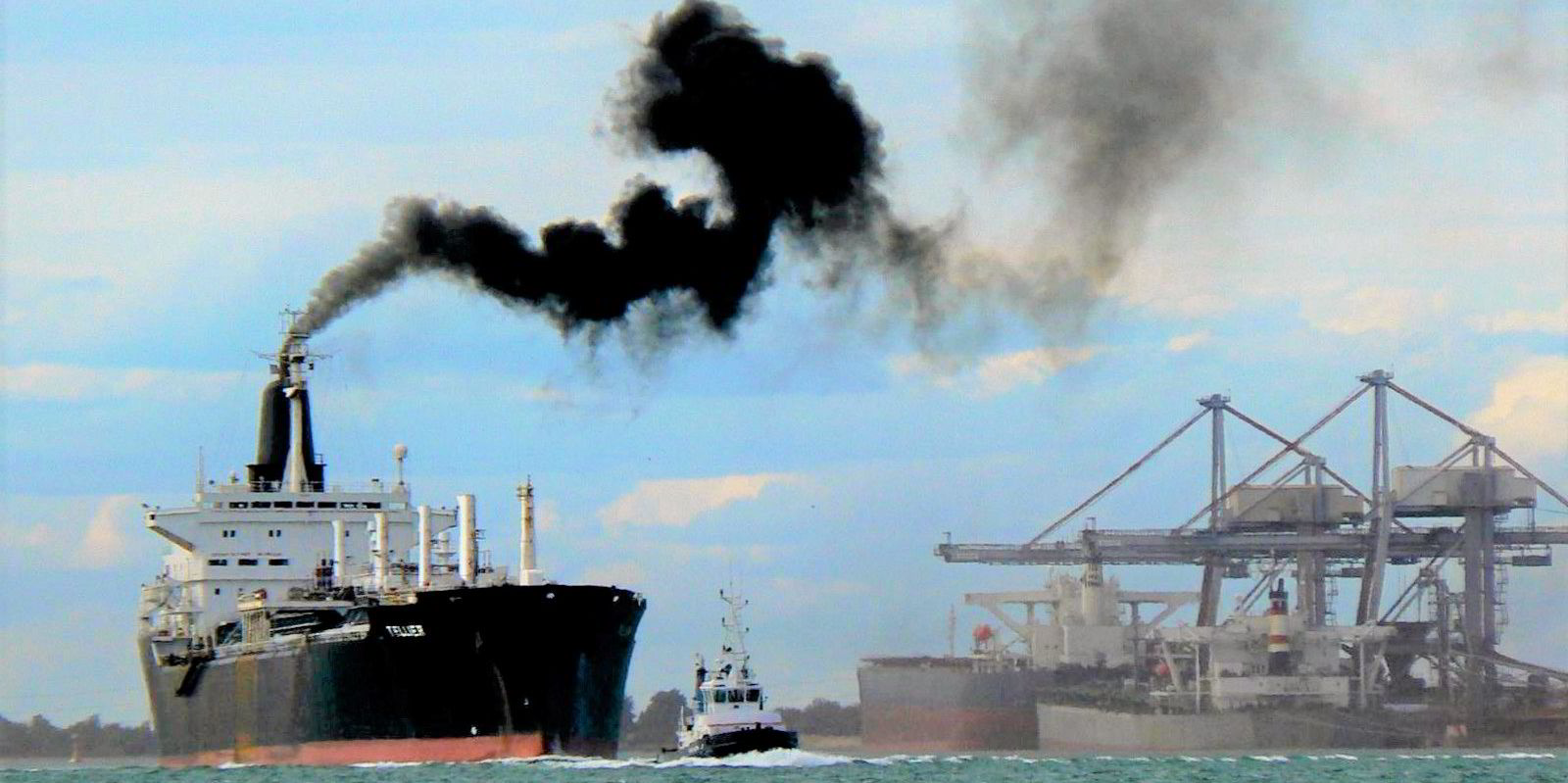It has been a long time coming, but shipping’s got there in the end. Today, the world’s major shipowner and operator organisations have finally accepted the need for rapid implementation of an effective global price for carbon pollution from ships.
Call it what you will — a carbon tax, a carbon levy or a market-based measure — the result is the same: acceptance that financial penalties are a vital tool to drive rapid and accelerating cuts to carbon emissions.
It is hard to overstate the significance of the moment. Even the note accompanying the official press release captured the drama. “This is a revolutionary call by the shipping industry, as never before has it endorsed putting a price on CO2 emissions,” the groups said.
The four organisations which put their names to the statement certainly carry influence. The International Chamber of Shipping (ICS) represents most national shipowner associations; Bimco is the world’s largest independent shipowner organisation; the Cruise Lines International Association represents the major companies in that sector; and the World Shipping Council the big containership operators.
Sea change
Until now, the consensus among such bodies was to quietly oppose market-based measures, or any regional rules, such as the European Union Emissions Trading System, in favour of supporting the long grass of the slow and grinding process of target-setting through the International Maritime Organization.
The reality that the initial carbon reduction targets set by the IMO lack ambition and effectiveness has now caught up with the industry.
According to Climate Action Tracker — the independent scientific analysis that tracks government climate measures — the IMO’s target to cut carbon buy 50% on 2008 levels by 2050 is “critically insufficient” to meet the Paris Agreement aim of “holding warming well below 2 degrees Celsius, and pursuing efforts to limit warming to 1.5 degrees”.
The current IMO aims risk contributing to a 4C rise or more if all industries did the same, assesses Carbon Action Tracker.
While carbon pricing will not directly change the IMO targets, it makes faster, deeper cuts much more realistic.
Meanwhile, the investment landscape has moved fast over the last two years with banks and investors increasing pressure on companies to cut emissions to reduce future risk, with politicians racing to keep up.
China has pledged to be carbon neutral by 2060, and this week the UK became the first country to count international shipping emissions as part of its Paris Agreement targets. US President Joe Biden’s climate envoy, John Kerry, ramped up the pressure further with a call to accelerate action.
Foot-dragging
Despite the foot-dragging from some in shipping towards carbon pricing, there have been some notable exceptions. BW Group’s Andreas Sohmen-Pao made a forceful call for a carbon levy at the Global Maritime Forum in Singapore in 2019, and others such as Rasmus Bach Nielsen at trading giant Trafigura have repeated the urgency of such calls more recently.
The power of progressive carbon pricing should be clear to all. It uses the most basic economic lever that if you increase the price of something, people will want to look for cheaper alternatives.

If applied globally to carbon fuels, it will incentivise cuts to emissions and help balance the higher cost as new fuels come to the market. And it has the great benefit of being able to be passed through to charterers, who would have to pay the higher price of carbon fuel but benefit from the lower price of green fuels.
It may even help garner renewed support for the ICS’s $5bn technology fund, which some originally saw as a smoke screen to avoid a robust carbon levy.
The next major question is the speed of agreement and implementation. The four shipping bodies rightly urge “world leaders to urgently examine” market-based measures. Experience shows the IMO is rarely fast, even when confronted with urgent tasks.
New dynamic political will is needed to drive action in months rather than years.
A couple of years ago, Hamish Norton president of Star Bulk Carriers and a former investment banker gave his view to the Financial Times on the looming IMO carbon regulations.
“It’s not a shipowners’ problem yet,” he said. He was right at that time. People could sit on their hands if regulatory compliance was their only guide in business.
“There are no mandates from regulators,” he continued. “It’s quite frankly nobody’s problem yet.”
In just two years, it is remarkable how fast and how far the agenda has changed.
Read more
- Shipowners call for market-based measures to accelerate decarbonisation
- US throws support behind IMO emissions cuts and promises investment
- UK government drags shipping into its national climate policy
- SEA-LNG says World Bank view on LNG is ‘a mistake’
- Asian momentum growing as Standard Chartered signs up to Poseidon Principles







